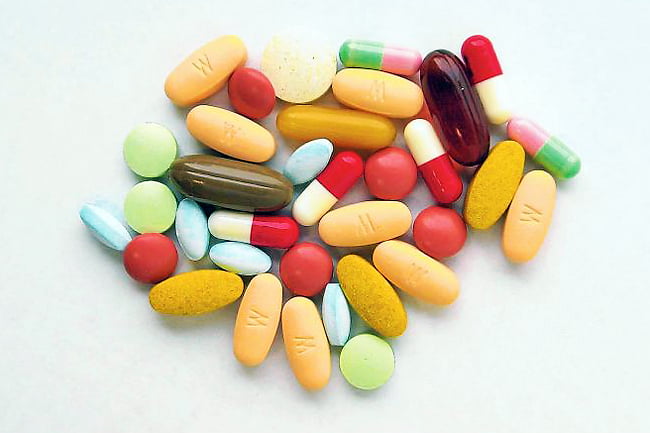
SINGAPORE (The Straits Times/ANN) – The money spent on such products hit US$374.4 million last year, up by nearly US$31 million from 2012, said a research firm.
Faced with the pressures of a busy lifestyle, more people are popping pills as a quick fix.
They spent US$374.4 million on vitamins and supplements last year, according to market research firm Euromonitor.
This figure was US$30 million more than the US$344 million spent in 2012.
“Many Singaporeans do not have time to stay physically active, and often indulge in meals that are unbalanced in terms of nutrition,” said Yvonne Wong, a research analyst at Euromonitor International.
“This, therefore, spurs them to purchase vitamins and dietary supplements to obtain the necessary nutrients.”
Experts said that for the most part, there is no harm in taking supplements and healthy people do not need to consult a doctor before taking them.
However, they warn that those on chronic medication should always seek medical advice first.
“Some supplements may interact with medications or work in a similar way to the medicine itself,” said Dr Derek Koh, who heads Thomson Wellth Clinic @ Novena. “Consuming both together may be a form of overdosing.”
He added that although stimulant drinks can provide a useful short-term boost, users may develop a tolerance for them in the long term and need to consume more to achieve the same effect.
Wong said the growing pill-popping trend is also seen in other developed economies such as the United States and South Korea. Pharmacy chains said that demand for vitamins and supplements has grown over the past five years, with popular products including probiotics for the gut and fish oil, which is said to be good for the heart and brain.
Many Singaporeans also consume a product known as co-enzyme Q10, said a spokesman for health supplement chain GNC Singapore. This is supposed to help lower cholesterol levels. The spokesman did not say how much sales of such supplements have grown. Sarah Boyd, chief executive of Guardian Health and Beauty in Singapore and Cambodia, said that customers these days go to stores “with a lot of existing knowledge and research”.
The pharmacy chain saw “single-digit growth” for vitamins and health supplements last year.
“We brought in more brands after understanding that there is a demand in this category,”Boyd added. “The range of products has increased by about 10 to 15 per cent.”
Parents tend to buy probiotics as well as brain and immunity-boosting supplements for their children, Boyd said.
In comparison, working adults typically spend on both immunity and energy boosters, while seniors buy supplements such as glucosamine for joints or eyecare products.
“Supplements help me fill my nutritional gaps,” said Kelvin Bai, who is a senior executive for business conduct and sales administration.
The 33-year-old finds it hard to maintain a balanced diet due to his busy schedule, and pops multi-vitamin pills on a regular basis to get “overall coverage of health benefits”.
Unlike medication, health supplements do not have to be approved or licensed by the Health Sciences Authority (HSA) before they are sold in Singapore.
They are also not assessed for effectiveness before they hit the shelves.
In addition, sellers typically do not have to apply for a permit to advertise health supplements, and such advertisements do not have to be screened before they are published.
However, the HSA does monitor products on the market to make sure that they do not contain harmful ingredients, and issues product recalls when necessary.
On its website, the authority said that this is “in line with the approach adopted in the regulatory systems of developed countries”.
It advises consumers to practise “personal caution” as “the onus is on dealers to be ethical, accurate and honest in claims”.
In one raid last year, HSA officers seized more than S$133,000 worth of illegal health products, including weight loss products claiming to be “100 per cent natural” and to contain “herbal ingredients”.
However, most of them contained a banned substance known as sibutramine. The drug has been banned in Singapore since 2010 because it increases a person’s risk of serious health problems, including heart attacks and strokes.
[“Source-borneobulletin”]
